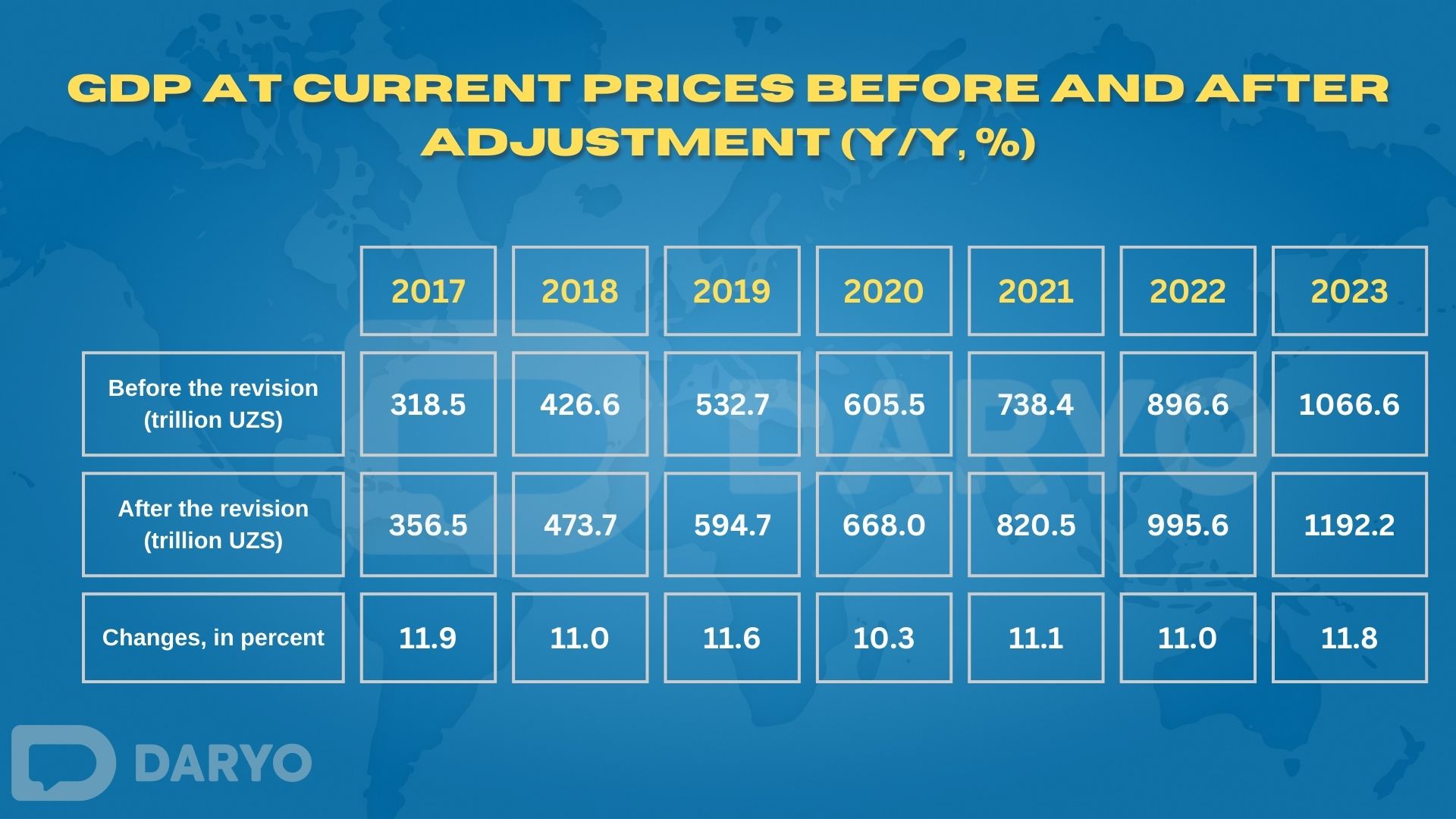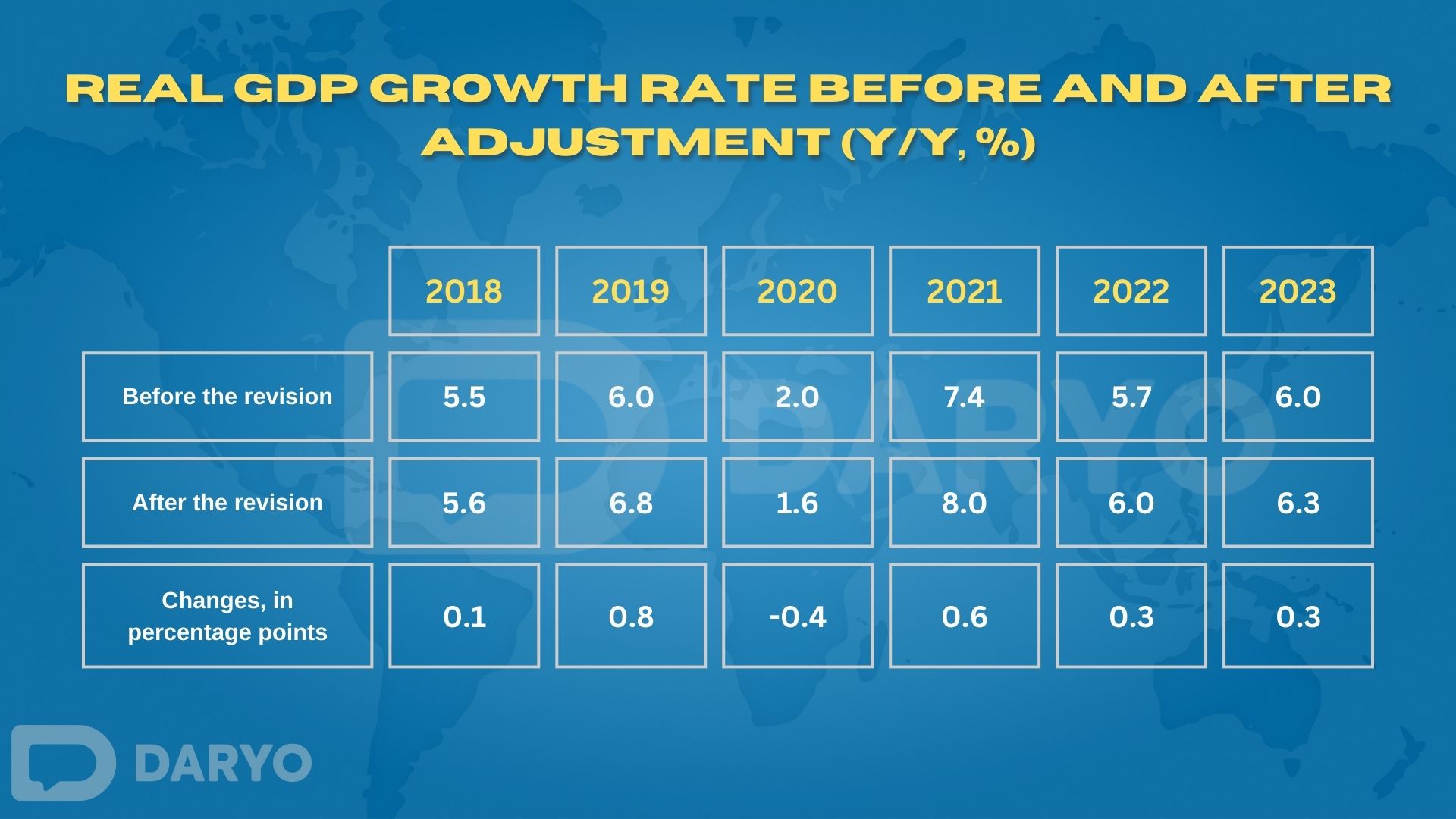A recent technical assistance mission by the International Monetary Fund (IMF) has brought to light significant adjustments to Uzbekistan's national accounts, resulting in a major revision of the country's GDP figures. The mission, conducted by the Caucasus, Central Asia, and Mongolia Regional Capacity Development Center (CCAMTAC) from April 8-12, 2024, provided a comprehensive review of the latest changes and recommended further steps to enhance the accuracy and reliability of Uzbekistan's economic statistics. These revisions, published on August 16, 2024, update the Gross Value Added (GVA) across various sectors for the years 2017 to 2023, leading to an estimated 10-12% increase in Uzbekistan's nominal GDP.
Major Findings and Adjustments

The IMF mission provided a comprehensive review of the latest changes and recommended further steps to enhance the accuracy and reliability of Uzbekistan's economic statistics. According to the IMF report, the revisions will particularly impact sectors such as food services and construction, which have been significantly underestimated in previous calculations. The GDP at current prices for 2017, for example, will be revised from 318.5 trillion UZS to 356.5 trillion UZS, marking an 11.9% increase. Similar adjustments will be made for subsequent years, with the 2023 GDP revised from 1,066.6 trillion UZS to 1,192.2 trillion UZS, reflecting an 11.8% rise. The report highlights that “the nominal level of GDP will increase in the range of 10–12 percent” due to the incorporation of new, more accurate data sources.

Real GDP growth rates have also been slightly adjusted, with the most significant change occurring in 2019, where the growth rate will be revised from 6.0% to 6.8%, an increase of 0.8 percentage points. The report underscores that “the maximum change in real GDP growth rate was recorded in 2019 and amounted to 0.8 percentage points,” highlighting the broader effort to improve the reliability of Uzbekistan's economic data.
Sector-Specific Insights
The revisions revealed substantial underestimations in the GVA for food and accommodation services, where figures for 2017 will see a dramatic increase from 1.9 trillion UZS to 16.0 trillion UZS, a 719.4% rise. Similarly, the construction sector's GVA for 2017 will be revised upward from 15.1 trillion UZS to 22.9 trillion UZS, reflecting a 51.3% increase. According to the IMF report, “the new estimates, based on improved data sources, are much more reliable than the estimates before the revision”.
Future Plans and Recommendations
Looking ahead, the IMF mission has provided several recommendations to further refine Uzbekistan's economic data. Key among these is the need to continue refining the NOE estimates and ensuring regular updates through sector-specific surveys every five years. The mission also emphasized the importance of revising the historical GDP time series from 2016 backwards, though these figures will only be made available upon request and will not be published on the official website.
In addition, the IMF recommended improving the data collection process for medium and small enterprises to ensure that quarterly GDP figures are more reflective of discrete data sources rather than cumulative statistics. A new project, set to launch in 2024, aims to revise the reference year for quarterly GDP from 2019 to 2024, further aligning Uzbekistan's economic statistics with international best practices.
Comments (0)